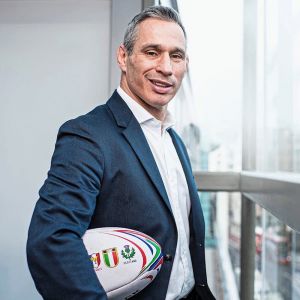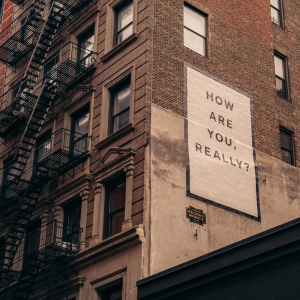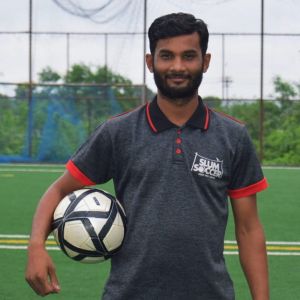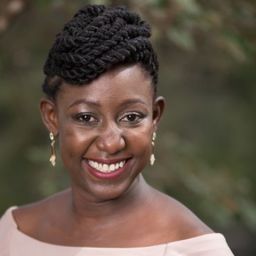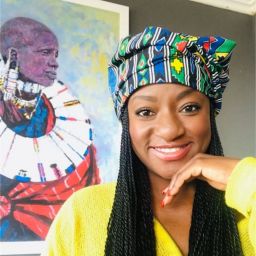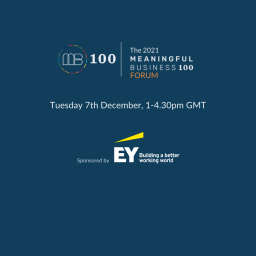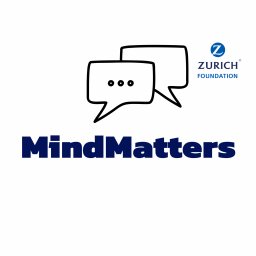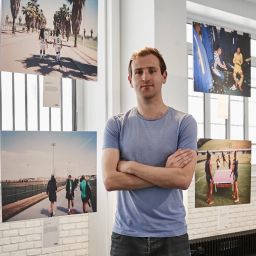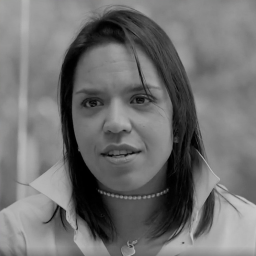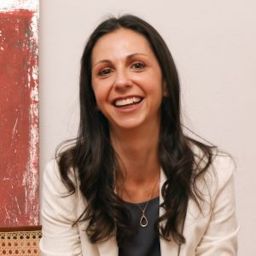Meaningful Business (MB): Please tell us a bit about You and your role?
Nichol Whiteman (NW): Each day, I wake up with immense gratitude that I serve as the CEO of the Los Angeles Dodgers Foundation (LADF). With a focus on homelessness, health care, education, and sports based youth development, LADF understands the importance of providing wrap around services for young people who live in communities with minimal resources.
My role involves designing strategic and creative solutions to some of the most pressing challenges that Angelenos face. I have the pleasure of leading a team with immense passion in the execution of our mission. Every young person deserves to dream and thrive. On behalf of a globally recognised brand, it is my responsibility to create pathways to opportunities that allow these dreams to become a reality.
MB: Why did you and the other organisations come together as part of the Reduced Racial Inequalities Collective Impact Group?
NW: At LADF, we like to say that, “It’s bigger than baseball.” As part of our commitment to ensuring that all young people have access to resources and support no matter where they live, we were pleased to accept the honor and opportunity to maximise our reach in addressing issues arising from systemic and institutional racism through the Reduced Racial Inequalities Collective Impact Group. While we were all given this assignment as winners of the 2020 Reducing Racial Inequalities Award, we were all quite motivated to share our thoughts, practice and expertise with others to make our space better for the youth we serve.
Integrating a social justice lens, LADF’s comprehensive and proven programmes use sports to break barriers and bridge the resource gap that has kept marginalised communities in the shadows for far too long. We were thrilled to be able to lend this expertise and best practice to the group and learn new and innovative ways to maintain equality in our own work, internally and externally.
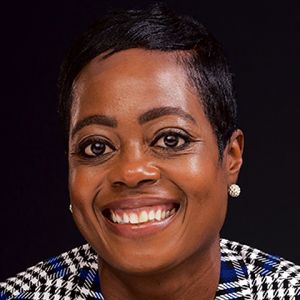
Nichol T Whiteman, CEO, Los Angeles Dodgers Foundation
MB: What specifically does the LA Dodgers Foundation do around addressing racism in sport?
NW: The LADF runs and funds proven programmes aimed at tackling social inequities, levelling the playing field, and investing in on-the-ground solutions driven by the community. LADF champions racial equity through Dodgers Dreamfields and Dodgers RBI, by making baseball/softball more accessible to racial/ethnic minority youth, refurbishing dilapidated fields in underserved areas, and delivering healthcare, educational resources, and trauma informed coaching approaches to create healing environments for Los Angeles’ most vulnerable youth.
And in our quest for a more equitable and just society, we offer unwavering support to the Black and Latino community through our programming.
Each year, LADF selects Dodgers RBI Affiliate Partners located in low-income and racial/ethnically diverse areas, as a way to encourage more Black and Latino youth to participate in Dodgers RBI. LADF works closely with schools and community-based organisations that predominantly serve Black and Latino youth, such as Inglewood and Compton, in addition to intentionally recruiting local partners in areas with high Black populations, to promote Dodgers RBI across the community.
Black coaches, parents, and caregivers are incredible resources to encourage Black youth to participate in baseball/softball, which is why we offer virtual skill-based coaching and parenting workshops centred around trauma-informed approaches, alongside our partners Up2Us Sports and Positive Coaching Alliance of Los Angeles. Here, coaches, parents, and caregivers receive training on how to create healing environments where youth can grow social-emotional learning (SEL) attributes, such as positive identity, discipline, and pro-social connections.
It’s important we also create spaces where Dodgers RBI participants, parents, and coaches can discuss race and racism. We elevate Black and Latino voices in our programming to further our commitment to uplift the Black and Latino community and engage in discourse that allows them to feel welcome and celebrated.
MB: How have you seen this issue evolve over the past year?
NW: Poverty disproportionately affects racial/ethnic minority youth, as 61% of Black children and 59% of Latino children live in low-income families. In Los Angeles, nearly 25% of youth aged 10-25 live below the poverty line, while 40% of homeless youth are Black and 14% of Black youth are not enrolled in school, not high school graduates, or not employed.
The impact of poverty can lead to diminished health and decreased readiness to learn and graduate from high school for Black youth, which only grows more severe, as the low-income communities where they live are exposed to traumatic experiences associated with poor housing, food and income insecurity, limited resources, inadequate schools, and high crime and violence. Traumatic experiences can significantly impact a child’s development and social-emotional functioning, which can lead to long-term health problems, learning difficulties and behavioural issues.
A recent traumatic experience is the pandemic itself, where the Black and Latino community has been overwhelmingly impacted by COVID-19 and has reported higher rates of anxiety and depression as a result. Understanding the barriers these communities faces and the impact a pandemic can have on top of that has highlighted why sport as a physical and mental health prevention tool can builds resiliency for these youth. I have seen many sports based youth development organisations embracing the root causes of the challenges of their beneficiaries.
As it relates to our culture as a Dodger brand and the culture of some of our partners who are also enormous brands, I have witnessed an internal culture shift. There was a change in the language that executives used when speaking about what success means. Those descriptions now included “inclusion,” “equity,” and “engagement.” This is a huge sign of progress because this is not public facing messaging. This is what I hear in the privacy of our own conference rooms and conversations. Building a more inclusive organisational culture that focuses on senior leadership requires diverse recruiting strategies. And by including diverse professionals, you are better positioned to create programs that provide the tools that Black youth and other youth of color deserve to help them access the same opportunities as their counterparts.
MB: How can the business community support advances to racism in society?
NW: Tackling racism starts from within your company if you truly want to make a difference.
If you believe in diversity and inclusion, then your hiring practices related to your team should reflect those values. It is not enough to merely state that you are looking for professionals of colour and women to fill key positions. Your Human Resource strategy must develop relationships with organisations that serve Black people, other people of colour, and women. Through these collaborations, you can create a seamless pipeline to support your hiring efforts. Oftentimes, companies report that they just can’t find the talent. When you ask where they looked, they respond with traditional methods like posting a job advertisement. This is not enough if you want results. Executives must identify who is on the front line when it comes to cultivating and nurturing diverse talent and then align with these organisations to promote opportunities.
There is a huge opportunity for the business community to see and support sports-based youth development organisations as an intervention and prevention tool – a conduit to a better social and emotional life for youth stifled in various situations based on their race, their neighbourhood, their zipcode. It simply isn’t okay to overlook the systems and just focus on pretty bandaids to address these issues. We have made a little progress. There is so much more to do.
MB: What role do sport organisations play specifically?
NW: As an executive in baseball and as a Black woman in America, there is a tremendous weight on my shoulders as we hear global cries for social justice. I often think of what I can do to help make this country better for us today and for the next generation. The tool that I can use… is baseball. Sport is the vehicle. It’s the path to bringing us together as we acknowledge that opportunities are not afforded to us all. Baseball is woven into the fabric of America. By leveraging the impact of the game, we can capture the attention of a significant portion of the population.
And while most people view professional sports as an escape, it has also been used during some of our nation’s most traumatic times to rally Americans around a common goal. Sport organisations play a critical role in reminding society that we have major things in common. Everyone wants to be free…free to live. Free to raise a family without the hovering fear that they will be met with violence simply because of the colour of their skin. When we break these issues down to the basic principles of “we all just want to live,” then it becomes easier to facilitate these tough conversations. Sports is the vehicle that brings us together as we acknowledge that opportunities are not afforded to us all.
MB: Finally, tell us about the REAL tool and why it was created?
NW: The REAL too provides organisations with a free online platform to self-assess their internal systems and practices. It gives actual steps that can be taken to help your organisation address systemic racism. As mentioned, it starts within, so we have to look within and this tool assists with that. The tool is designed to give people next steps, action items their organisations can take to improve. As a result of taking the survey, which includes 11 questions, a free tailored report is provided. The reality is we have to get our own houses in order. We have to use tools like this to support a continued movement, not moment in time. Check on ourselves often, are we doing better? Can we do better? How do we do better? The tool helps us answer some of these questions and track our progress.
___
to join the ‘Game on’ working group, alongside other leaders committed to delivering social impact through sport, apply to become a member of meaningful business here.


